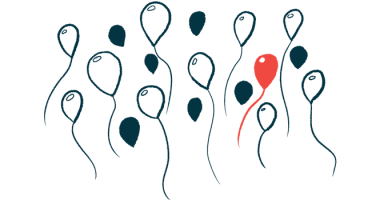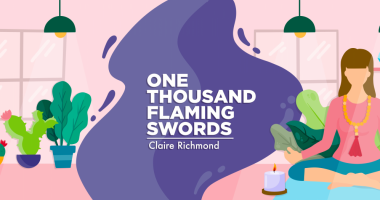Staying Motivated With a Chronic Disease Like Porphyria

Living with a rare and chronic disease such as porphyria, with its multitude of symptoms, can make it hard to stay motivated.
Here are some tips that may inspire you to keep going on those days when motivation is hard to come by.
Ask for support
Sometimes, daily life can be isolating when you have a chronic illness like porphyria. Having someone “by your side” — a family member, friend, or work colleague — can help you cope and remain resilient. Do not hesitate to reach out to a relative, friend, or neighbor to ask for their support.
You also can turn to support organizations such as the American Porphyria Foundation, where you can find other people who may have similar experiences. Asking them what strategies have helped them to stay motivated may give you some good ideas to try.
Be generous
When you’re living with chronic illness, it can seem like a stretch many days to think of others. However, giving back can help your perspective and perhaps make you feel better.
Enjoy a hobby
To the degree that you are able, why not pursue some hobby or passion? This may help you to stay motivated and upbeat, which could enable you to cope better with your condition.
Make lists
You may find yourself constantly dwelling on what’s wrong. To counter this tendency, make a list of the things porphyria prevents you from doing. Then make another list of potential workarounds for each limitation.
For example, if you have cutaneous porphyria and you need to avoid sunlight, ask a partner or friend to go to a farmer’s market for you for some fresh produce. Then share a bit of the bounty or what you cook with them. Retaking control of your situation incrementally promotes optimism.
You also might make a list of all the things you still can do in spite of your porphyria. Perhaps writing such a list will make you motivated to do some of these activities.
Be compassionate with yourself
It’s normal to become angry or frustrated at times when you’re dealing with chronic illness. Be patient with yourself; treat yourself as you would a good friend.
Unwind with music or a book
Music can be restorative when you’re feeling down. Turn on your favorite sounds and get lost in the moment. One song may move you spiritually, while another may help you relax. If you need to get moving, an upbeat tune may be just the ticket.
Likewise, a good book can lift your spirits. Or it can introduce you to another country or culture, and maybe motivate you to learn more.
Be accepting
Accepting that you have a chronic condition for which there is no current cure can be freeing in its own way. While such a mindset doesn’t make the disease go away, it can remove a layer of discomfort that accompanies struggling against what is true in the moment.
Embrace a ‘beginner’s mindset’
Relatedly, a concept called the beginner’s mind, or Shoshin, is the mindfulness practice of viewing life from a beginner’s perspective. It refers to having an attitude of openness, eagerness, and lack of preconceptions when studying a subject.
When you’re living with limitations, it can at times feel like you’re not moving forward with life. Applying the beginner’s mind to your everyday life can help bring back a curious childlike nature that gets lost for most people as we age.
Stick to when you’re most productive
Try to follow your body clock to have a productive day. You don’t want to set yourself up for failure by trying to accomplish a task when you haven’t the energy. You know your body better than anyone, and following your body clock can help you stay motivated.
Minimize tasks
Breaking tasks into smaller goals can help ease stress and promote feelings of accomplishment. In turn, this can lead to greater accomplishments and an overall sense of wellbeing.
Make time to rest
Dealing with a rare disease can be mentally and physically exhausting, so schedule some time each day to rest or relax. When the time comes, focus on nothing except resting. This is important for your emotional and physical health.
Last updated: Feb. 16, 2021
***
Porphyria News is strictly a news and information website about the disease. It does not provide medical advice, diagnosis, or treatment. This content is not intended to be a substitute for professional medical advice, diagnosis, or treatment. Always seek the advice of your physician or other qualified health provider with any questions you may have regarding a medical condition. Never disregard professional medical advice or delay in seeking it because of something you have read on this website.






